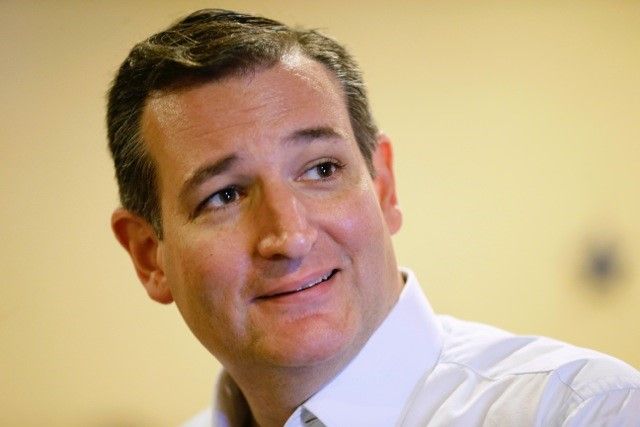George W. Bush reportedly took a shot at Ted Cruz in a closed-door fundraiser Oct. 18, telling donors: “I just don’t like that guy.” He didn’t express strong feelings against his brother Jeb’s other primary opponents, including Donald Trump. Perhaps it was just campaign-strategy talk, but don’t you think he meant it?
His candid comment helps explain why Cruz probably won’t be the Republican nominee: Important people within the party just don’t like him.
Of the 22 announced candidates for president in the 2016 cycle (in both parties) and the additional half-dozen or so who ran and dropped out before announcing, Cruz is the only one who has had me second-guessing myself. I’ve said Cruz isn’t a plausible nominee, and I’ll stick with that. But while I’m confident that Trump, Ben Carson, Bernie Sanders and others just can’t win, I’m less certain about Cruz.
He passes, if not by much, the basic nominee test. He has conventional qualifications for the office – a little skimpy as a first-term senator elected in 2012 with no prior experience in elective office, but his other government jobs make him at least comparable to Barack Obama in 2008. And his views on the issues are within the mainstream of his party. He’s good at appealing to Republican voters. If factional candidates with great public skills won presidential nominations, then Cruz would make plenty of sense.
But presidential elections since the 1980s have typically been won by coalition-style candidates. Cruz has managed to make enemies of practically every one of the other 99 U.S. senators, plus a large swath of the House, including the Republican leadership. You could point out, as I have, that support in Congress has always been overrated when it comes to getting presidential nominations. But it’s one thing when congressional colleagues don’t especially support a candidate (as was the case with John Kennedy in 1960); it might be another when they actively dislike someone.
Cruz’s major accomplishment during his short career in the Senate was the October 2013 government shutdown, widely seen as a disaster for the Republicans. If party actors choose the nominee, then the opposition of the politicians in federal office (and presumably the governing professionals who work for them) seems like an important negative. Why would even his own faction within the party support someone with a record of strategic and tactical blunders?
A normally functioning party would go nowhere near Cruz. It would choose one of the several other candidates who have the same positions on policy and have better reputations. But are the Republicans a normally functioning party? Given how the Republicans have treated their own leadership in the House of Representatives, it’s hard to know.
If I’m wrong about Trump, Carson and Sanders, then everything other political scientists and I believe about the presidential nomination process – that parties choose – is likely wrong. But if I’m wrong about Cruz, it will be because I didn’t fully appreciate how messed up the Republican Party has become.
Jonathan Bernstein is a political columnist for Bloomberg View.






